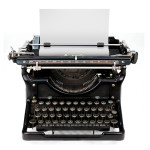
Wondering about the potential of your book or manuscript to become a bestseller? Wish there were a test to empirically measure it? As a fun exercise, I came up with one.
I started with my own list of good fiction qualities then supplemented it with ideas found in other places. One of the most helpful sources was a 2012 Writer’s Digest article containing a list of twenty-one key traits of bestselling fiction from The Writer’s Little Helper by James V. Smith, Jr. (I was surprised when I realized Smith’s book is aimed at writing for young adults, but I guess it shows good writing is good writing regardless of the intended audience.) According to the Writer’s Digest article, Smith says his list was the result of a “study of thousands of reader reviews on Amazon.com.”
The goal was to build a construct a list of the top fifteen qualities of bestselling fiction. Why fifteen? Very scientific. I wanted to assign a 1-5 rating scale for each quality and have the top possible score equal 75. Is it empirically valid? Oh, don’t worry about that. I ran it by mathematicians at NASA’s Jet Propulsion Laboratory just to make sure.
Seriously, most lists I found, while good, contained only a handful of attributes of successful fiction-writing. I wanted a list that would compel writers to think beyond broad categories and drill down to specifics.
Top Fifteen Qualities of Bestselling Fiction
Here’s my list of the Top Fifteen Qualities of Bestselling Fiction:
1. The Beginning (starts strong, captures attention)
2. Voice (active, compelling, original)
3. Characters (unique, believable, interesting, funny, flawed)
4. Original/Inventive (voice, characters and plot are fresh and creative, even if addressing classic themes)
5. Writing (diction, dialogue, transitions, descriptions, chapter endings, everything that goes into good fiction-writing)
6. Plot Logic (parts fit together, makes sense, no large holes, integrates disparate plot threads)
7. Plot Progression (story development maintains a fast pace)
8. Focus/Clarity (pursues clear objectives, achieves a goal)
9. Tension/Suspense (builds throughout)
10. Imagery/Setting (captures an “I’m there” feeling regarding environments/cultures where events unfold)
11. Emotional Connection (characters and story evoke emotions, positive or negative, and connect with readers)
12. Thought-Provoking (makes readers stop and think)
13. Truth (advances one or more compelling truths)
14. Grammar and Punctuation (professional appearance, particularly important for indie writers without editors trying to get noticed)
15. The Ending (“satisfying” in the context of the story, answers or at least addresses unanswered questions, hints of transcendence)
Your first thought might be: “That’s not an accurate list. It leaves out A, B, and C.” But consider whether your additions are subsumed in one of the listed categories.
Your second thought might be: “The top qualities for fiction-writing vary by the genre and author’s intent. Not all bestselling novels share all of these qualities.” That’s also true, but even if your intent was not to advance one or more the qualities on this list, rate them anyway or it will invalidate the highly scientific test results. Seriously, if a category truly has no application to your particular goal and genre, give it a median score of 2.5.
Official Grade-Your-Fiction Test Rules
Here are the Grade-Your-Fiction Test Rules:
1. Score your book 1-5 for how completely it satisfies or advances each of the fifteen qualities:
5 = My book excels as to this quality
4 = My book does a really good job as to this quality
3 = My book is average as to this quality
2 = My book makes an effort but falls short as to this quality
1 = My book does not advance this quality
2. Be objective. We all can be both our worst critics and biggest fans when it comes to evaluating our own writing, sometimes at different times of the same day. Focus on each quality honestly and objectively … yeah, right. As if that were possible. Well, at least try to be honest and objective. In self-testing Psycho-Tropics, I was able to pinpoint an issue I long recognized in an abstract way, but was never able to isolate.
Still, no question it would be best to also enlist people who’ve read your book and who you know to be brutally honest to score the test. Comparing scores may be enlightening, to say the least. As some friends over at the Goodreads Indie Revolution Group (fantastic group of indie authors and readers) suggested, the test might be best-suited to give to beta readers of your book. They can use it as a kind of scorecard and report back with much more specific feedback than vague expressions of like or dislike.
3. Focus on a particular work of fiction, not general writing ability. Don’t score yourself on your general writing or even fiction-writing skills. Apply the test to a single work. The focus should be: “Did I craft a good novel from beginning to end?” If you have more than one work of fiction, pick the best one.
4. Add up the numbers and measure your book by this scoring scale:
65-75 = Awesome. You may be on your way to becoming the next John Grisham or Stephen King!
55-64 = Well done. You are a legitimate contender to be a successful novelist.
45-54 = Nice job. Focus on your weaknesses in your next book to bring it up to the next level.
35-44 = Not bad. You have potential, but need to keep studying your craft.
25-34 = Needs work. Consider taking a fiction-writing course before embarking on another novel.
24 or below = Maybe look for another creative outlet. Fiction-writing isn’t for everyone, even people who are otherwise really good writers.
Feel free to comment with additions, subtractions, reductions, expansions, criticisms, etc., regarding the “Official (oh yeah) Top Fifteen Qualities of Bestselling Fiction” list.

